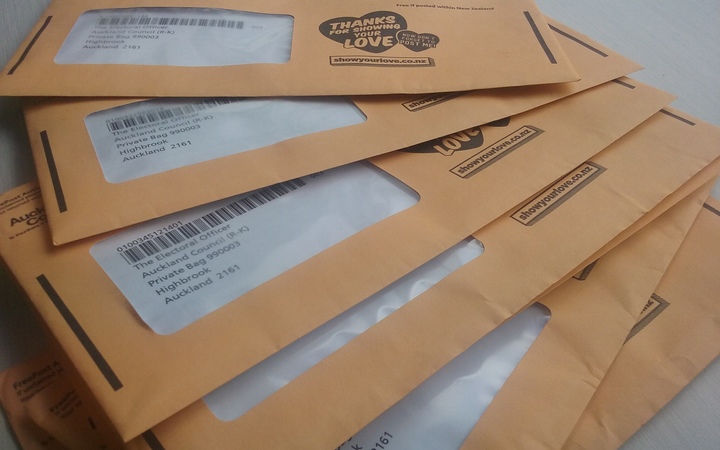By Paul Simperingham
Voter turnout for local elections in New Zealand has been falling since the 1980s, with the 2019 Auckland race set to be the lowest in our city’s history. From 1989 to 2016, mayoral turnout has gone from 57% to 42%, and council voter turnout has fallen from 56% to 43% [1]. Meanwhile, the 2019 election in Auckland is showing a turnout of 6.04% as of September 30th, a number which the three previous local elections all beat [2].
General election turnout has also been falling, but not to the same low levels [3], and it appears to be retaining a lot of the voters that local elections don’t, with 55% of Auckland non-voters reporting that they voted in the general election [4].
https://thespinoff.co.nz/local-elections/24-09-2019/the-true-impact-of-new-zealands-wildly-uneven-voting-statistics/
What can explain this low voter turnout, especially compared to general elections, and why has the number been falling?
I talked to Dr Lara Greaves, a University of Auckland lecturer in New Zealand Politics and Public Policy to see what she thought about the issue. She proposed several different reasons for voter turnout was so low, particularly highlighting confusion on the part of voters, difficulties in the modern world, and a lack of excitement.
Causes
A large portion of the local population do not understand what the local government does. “That’s the problem I think, no one knows what local boards do, no one knows who’s running, no one knows how to vote.” 29% of non-voters saying that they primarily didn’t vote because of a lack of understanding of local elections and what it accomplishes [4].
Another large obstacle appears to simply be competing against other entertainment. “Why vote when you could just watch Married at First Sight? Or watching the World Cup, or whatever else floats your boat? You could be doing that instead of looking at this booklet on a Saturday night.” There are more forms of entertainment than ever, which Lara believes simply just means people have less time to spend following politics. “People used to go to political events, or the National Party ball or whatever because there was just fundamentally less stuff to do.”
Furthermore, the modern world creates friction between how we’re living and how voting is conducted. “It’s via post and I can’t even think of the last time I got mail. The only mail that I ever get is the New Zealand herald trying to get me to subscribe.” Elections depend on paper voting based on your address and are not responding to the trend of people living in housing for shorter periods and the movement away from physical mail.
Along with this, inequality contributes to a lot of people living in communities for short periods. Lara believes that “if you’re floating in a neighbourhood for a year, then you don’t create any bonds, and when you move address you don’t feel like you gain anything by bothering to update your information.” 29% of non-voters at the 2016 Auckland election saying they didn’t vote because they were apathetic, reporting that they didn’t vote because they just aren’t interested or didn’t know anyone who voted. Lara believes this goes a long way to explaining why “asset ownership is really important to indicate participation.”
Finally, Lara simply doesn’t think local elections get people motivated in the same way. “Local elections are just so boring, I’ve got a friend that works for RockEnrol, and no one knows how to make government entertaining.”
“There’s a real lack of diversity at the local level, even more so than in central government. At one stage, there was more John’s running for mayor then there were those born after 1980. It’s just hard to get people excited for candidates where they don’t know what they actually stand for, what they do, or even how to vote.”
https://www.rnz.co.nz/news/national/315224/voting-papers-%27simply-didn%27t-arrive%27-in-horowhenua
Solutions
However, the real question is: what can we do about this? Can we make local elections more exciting, or will they always lag behind general elections? What is the path to making voting more appealing? Do we have to change how they operate to make them less confusing or is education the answer?
“I think it’s a good idea to teach civics in school. I think with the announcement that they’ll be teaching New Zealand history, it’s a great time to slot that in. I think it also provides people with a good opportunity to get into politics.”
“Part of that will be a bit of how to be a good citizen versus the extent to which it would cover what is a local board and stuff like that. But overall I think it’s better to try something and see if it works or not.”
Lara’s proposals would likely address the confusions mentioned above. She sees the entire local voting system as incredibly confusing, and that as a self-prescribed “political nerd” she only learnt how it worked in 2017 when she had to teach it. “Often, Politics 107 or whatever is the only civics education that someone gets. But you want the net to be quite wide, so I think high school is probably good.”
Above all, Lara sees changes to the motives of the system as the way to get more people involved. “There has to be some kind of incentive for the system to actually try to get people to participate. For people in politics, apart from some pockets on the left, there aren’t really reasons to get people voting. At the moment, there’s no reason to get more people participating at the moment, but it’s just not working.”
However, she went on to express her doubts at how feasible these changes actually are as “people who are self-interested have no reason to change it because the people that are put in power at the moment have benefited from the system as it currently is.”
What about the viability of introducing a compulsory voting system, similar to Australia? Many believe that it can prevent populism and increase representation of disenfranchised groups, but Lara disagrees. [5] [6] “I’ve got mixed feelings on this. On one hand, there are some Māori who would say that they’re a conscientious objector to voting because the system colonised and killed us. Then if you’re fining people, is that just going to cause people to double down on not voting?”
“I think we’re better off exhausting as many of our options as we can without making it compulsory. Maybe if we continue down this trend and in 20 years, we’ve got more people non-voting than voting, then we would probably have to do that.”
However, Lara also mentioned something that is little seen elsewhere. She argued that many non-voters might be a good sign. “We know that people are genuinely most interested in politics when either they’re trying to maintain their own group’s interests or they’re trying to fight for their own rights. This is where we especially see this with the LGBT community tending to be more politically active, and we find Māori fighting politics is more important to their identities because again these groups are fighting for their rights. So, you could say it’s possibly a good sign that fewer people vote because they don’t feel the need that they have to fight for these sorts of fundamental rights.”
This doesn’t mean she sees it as unimportant though: “voting is on the way down, and I’m really unsure what to do about it, because it’s important…[if you reach] below 50%, you sort of lose legitimacy, and currently local elections, even in Auckland with the super city are far below that.”
No matter how you see voter participation, voting is trending down at the local level, and it appears that there aren’t any easy answers to how to change that.
References:
- https://www.dia.govt.nz/diawebsite.nsf/wpg_URL/Services-Local-Elections-Local-Authority-Election-Statistics-2016?OpenDocument
- https://www.aucklandcouncil.govt.nz/elections/Documents/elections2019voterreturns.pdf
- https://elections.nz/democracy-in-nz/historical-events/2017-general-election/voter-turnout-statistics-for-the-2017-general-election
- http://www.knowledgeauckland.org.nz/assets/publications/Understanding-opportunities-increasing-voter-participation-Auckland-local-elections-May-2019.pdf
- https://www.theguardian.com/australia-news/2019/mar/08/how-australias-compulsory-voting-saved-it-from-trumpism
- https://www.economist.com/finance-and-economics/2016/05/28/make-me
Featured Image Credit: https://www.stuff.co.nz/auckland/116167582/auckland-council-election-voting-trend-remains-at-an-alltime-low
The Public Policy Club is a non-partisan club at the University of Auckland that aims to encourage, educate and involve students from all backgrounds in the education and development of political knowledge. The views and opinions expressed in this article are those of the author and do not necessarily reflect those of PPC.






